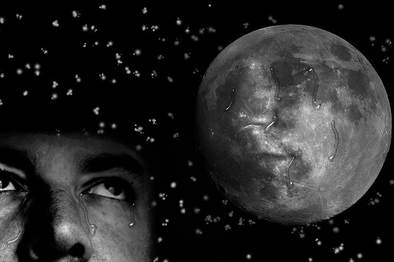|
Blog written by Joaquim Ignácio S da Mota Neto, MD, MSc - Psychiatrist, Federal University of Pelotas, Brazil  Apparently, those weird green creatures who live on distant planets and who whizz across outer space, as seen in even weirder old sci-fi movies, are getting ready to be replaced by the very well known shape of human travellers! Among the many issues concerning human beings becoming extraterrestrials, either permanently or for short periods of time, are those concerning mental health. What happens to our minds in a situation like that? Is the human brain mouldable or adaptable enough to avoid an emotional crisis during such a challenging experience? Emotions and reactions to the environment are an inexorable part of human life - anxiety, fear, sadness, aggression, a wish to die, and so on. Most of these are quite usually seen as psychological or psychiatric features related to the common diagnosis of mental illnesses, such as panic disorder, major depression, psychosis or phobias. More than just feelings emerging from the latent, smouldering traits of someone's personality, they represent the way many portions of the cerebral cells and their connections are behaving in a particular period of time.  Depression is a disease that affects about 120 million people worldwide and is the leading cause of disability, according to World Health Organization. If we take this disorder as an example of a possible disruptive situation to be coped with during a space mission, we can understand the reasons why neuroscience is a very important medical field to be explored and to be put into perspective if trips like those to Mars are on the menu in the near future. Depression used to be described as the loss of the main appetites, i.e., a loss of appetite for work, food, sex, and for life itself. Perhaps more so than the feelings of sadness and hopelessness, the main real problems for depressed people are the lack of energy and decreased sense of interest or pleasure. There is also a huge impact on cognitive aspects, such as attention and memory, which reduces the ability of a person to accomplish minimal daily tasks, when mixed with insomnia, fatigue and psychomotor retardation. An affective disorder has biological and psychological triggers and it is obvious that while traveling or even living in space, the human body and all its organs, including the brain, must face troublesome phenomena, such as microgravity and cosmic radiation, not to mention the isolation and implicit fearful idea of a possible off-Earth death. Separately or together, and alongside genetic predisposition, these facts can represent the causes of mild or severe depression among crew members or civilians engaged in a space mission, besides eventually interfering in responses to treatment. "It is a little bit surreal to know that you are in your own little spaceship, and a few inches from you is instant death." NASA Astronaut Scott Kelly, 2016 Hundreds of experts and researchers have been trying to delineate all the important medical knowledge required in order to guarantee the success of space projects. It is also crucial to take into account that mental illnesses are able to jeopardise human lives and societies on any planet, regardless of whether that planet is blue or red.
0 Comments
Your comment will be posted after it is approved.
Leave a Reply. |
Welcometo the InnovaSpace Knowledge Station Categories
All
|
InnovaSpace Ltd - Registered in England & Wales - No. 11323249
UK Office: 88 Tideslea Path, London, SE280LZ
Privacy Policy I Terms & Conditions
© 2024 InnovaSpace, All Rights Reserved
UK Office: 88 Tideslea Path, London, SE280LZ
Privacy Policy I Terms & Conditions
© 2024 InnovaSpace, All Rights Reserved
 RSS Feed
RSS Feed